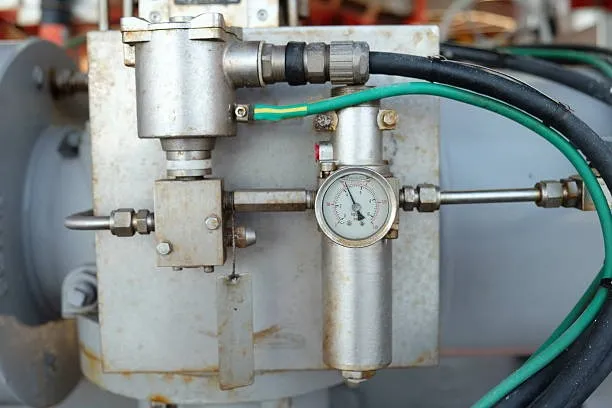
Boiler Tune-Up in Airville, PA
Keeping your boiler tuned and running reliably is one of the most cost-effective ways to protect comfort, safety, and energy bills in Airville, PA homes. With cold, damp Pennsylvania winters and a mix of older hydronic systems across the area, an annual professional boiler tune-up prevents unexpected breakdowns, improves efficiency, and extends the life of your system.
Why a boiler tune-up matters in Airville, PA
Airville experiences prolonged cold periods and humidity swings that place extra strain on boilers. Mineral buildup from local water conditions, seasonal cycling, and aging components can reduce efficiency and create safety risks. A tune-up addresses these issues proactively so your system warms your home consistently during freeze periods and operates safely year after year.
Common signs a tune-up is needed
If you notice any of the following in your Airville home, schedule a professional inspection and tune-up:
- Uneven heating or cold spots in radiators or baseboards
- Increased fuel or utility bills without a change in usage
- Strange noises (knocking, banging, gurgling) from the boiler or piping
- Yellow or irregular burner flame instead of steady blue
- Frequent cycling on and off or failed ignition attempts
- Visible leaks, low system pressure, or repeated pressure drops
- Unresponsive or inaccurate thermostat readings
What a typical boiler tune-up includes
A professional tune-up is a systematic inspection, cleaning, testing, and basic adjustments to return your system to safe, efficient operation. Core components covered:
- Combustion analysis
- Measure combustion efficiency and flue gas composition to confirm safe fuel burn and identify issues like incomplete combustion or excess carbon monoxide.
- Burner cleaning and inspection
- Remove soot and debris from burner assemblies and check burner seals, electrodes, and pilot or ignition systems.
- Pilot and ignition checks
- Verify reliable ignition, clean pilot or spark components, and ensure safe shutdown behavior.
- Heat exchanger and vent inspection
- Visual inspection for cracks, corrosion, or soot buildup; verify proper venting and draft characteristics to prevent dangerous flue gas buildup.
- Thermostat calibration
- Check and calibrate thermostat and control settings so the system responds accurately to the temperature you set.
- Safety and control checks
- Test pressure relief valve, low-water cutoff, safety switches, and other safety devices to ensure they operate correctly.
- Circulator pump and zone checks
- Inspect circulator pump(s), bearings, and zone valves; verify proper flow through radiators and piping.
- Expansion tank and pressure checks
- Inspect expansion tank condition and system pressure. Adjust and top off as needed.
- Water quality and leak inspection
- Check for mineral buildup, corrosion, and visible leaks that can compromise performance and component life.
- Basic adjustments and recommendations
- Fine tune fuel-air mixture, pilot settings, and control set points. Provide written notes on any recommended repairs or parts replacement.
Diagnostic process (what a technician will do)
- Interview and initial assessment: Ask about recent performance, noises, and bill changes.
- Visual safety inspection: Look for leaks, corrosion, and obvious hazards.
- System startup and observation: Monitor ignition, burner behavior, and cycling.
- Combustion testing: Use handheld analyzers to measure oxygen, carbon monoxide, and stack temperature.
- Component tests: Verify operation of circulation pumps, valves, safeties, and controls.
- Cleaning and adjustments: Clean burners, adjust combustion, and calibrate controls.
- Post-tune verification: Re-test combustion, pressures, and temperature control for stable operation.
Typical duration and pricing notes
- Estimated duration: Most residential boiler tune-ups take between 60 and 120 minutes. Simple systems with easy access are closer to the lower end; older or multi-zone systems may require more time.
- Pricing: Actual cost varies based on system age, access, required diagnostics, and whether parts or repairs are necessary. Pricing is influenced by factors commonly found in the Airville area such as older cast-iron boilers, multi-zone hydronic setups, or hard water-related maintenance needs.
Immediate benefits you’ll notice
- Improved efficiency and lower energy waste
- More consistent, even heat throughout the home
- Increased reliability and fewer surprise breakdowns during cold snaps
- Enhanced safety through combustion testing and safety device verification
- Longer equipment life and reduced long-term repair costs
Common tune-up issues found in Airville homes and solutions
- Soot and scale on burner and heat exchanger: Clean and, if needed, recommend chemical or mechanical descaling.
- Faulty ignition or pilot: Replace worn electrodes or pilot assemblies and re-calibrate ignition timing.
- Circulator pump wear: Lubricate or replace failing pumps to restore flow and stop noisy operation.
- Pressure and expansion problems: Re-pressurize system, repair leaks, and replace failing expansion tanks or relief valves.
- Thermostat or control drift: Recalibrate or replace controls for accurate temperature management.
How tune-ups fit into a broader maintenance plan
- Annual inspection: Schedule a professional tune-up at least once a year, preferably before the heating season, to prevent winter failures.
- Mid-season check: For older or complex systems, a mid-season visual check helps catch problems early.
- Preventive replacement: Tune-ups reveal worn parts early so you can budget for phased replacements rather than emergency overhauls.
- Water treatment strategy: In areas with hard water, adding water treatment or periodic system flushing can extend boiler life and maintain efficiency.
Maintenance tips for Airville homeowners
- Bleed radiators at the start of the heating season to remove trapped air and improve circulation.
- Monitor system pressure and note any unexplained drops between tune-ups.
- Keep the boiler area clear of debris and combustible storage.
- Track energy usage and heating performance to detect gradual declines that may signal a need for service.
A professional boiler tune-up delivers measurable safety, performance, and longevity benefits—especially important in Airville where winters and local water conditions add stress to hydronic systems. Regular, expert maintenance keeps your home comfortable, reduces operating costs, and protects your heating investment for years to come.


Enjoy flexible financing options that make upgrading or repairing your HVAC system easy and budget-friendly.










